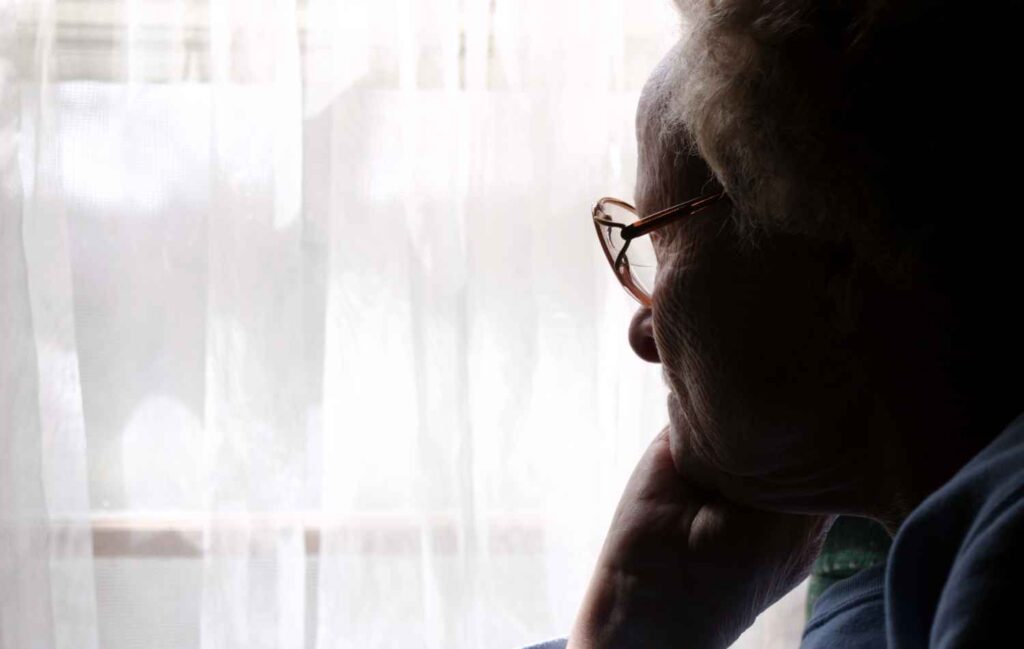
The transition from childhood dependence to adult independence challenges all young people, but orphans navigate this journey without the parental guidance most of their peers take for granted. The IDF Widows and Orphans Organization recognizes that successful adult integration requires intentional support across social, educational, and professional domains—not just during childhood, but extending into the critical young adult years when foundational life patterns establish.
How Does Age-Specific Programming Address Developmental Needs?
Child development research consistently demonstrates that different ages require different forms of support. The Organization's programs reflect this developmental understanding, tailoring interventions to where orphans are in their life journey.
Elementary-age orphans (ages 6-12) participate in after-school programs that combine academic support with social-emotional learning. These programs address the concentration difficulties and academic performance declines common after parental loss while building peer relationships with other orphans who understand their experience. According to research from Stanford University, structured after-school programming significantly improves academic and social outcomes for at-risk youth.
Adolescent orphans (ages 13-18) engage with programs addressing teen-specific challenges—identity formation, peer relationships, romantic interests, and increasing independence—all complicated by parental loss. Teen programs balance grief support with normal adolescent experiences, ensuring orphans aren't defined solely by their loss.
Young adult orphans (ages 19-29) participate in the Otzma Plus program designed for this often-overlooked age group. These orphans face adult challenges—career development, romantic relationships, potential parenthood—without the parent who should guide them. Specialized programming addresses these unique needs, recognizing that losing a parent during young adulthood creates different challenges than childhood loss.
What Educational Support Programs Promote Academic Success?
Education represents orphans' primary pathway to economic opportunity and successful adult integration. The Organization's educational programming addresses both immediate academic needs and longer-term educational attainment.
Tutoring services help orphans maintain academic performance despite the concentration difficulties, motivation problems, and time disruptions caused by grief and additional family responsibilities. Individual and small-group tutoring addresses specific subject struggles while providing consistent adult mentorship.
Homework assistance programs create supportive spaces where orphans complete assignments with adult guidance and peer support. For orphans whose widowed parents work multiple jobs or struggle to provide academic support due to their own grief, these programs fill critical gaps.
College preparation programming demystifies university applications, entrance exams, financial aid, and the transition to higher education. Organization staff guide orphans through essay writing, exam preparation, campus visits, and application submission—processes their parents would typically support.
Scholarship administration ensures orphans access financial resources for education. Beyond administering its own scholarships, the Organization helps families identify and apply for external scholarships, maximizing available funding. Research from the National Center for Education Statistics demonstrates strong correlation between educational attainment and lifetime economic outcomes, making educational support essential for orphans' long-term wellbeing.
How Do Mentorship Programs Provide Guidance and Role Models?
Parental loss removes the primary adult guidance figure from orphans' lives. Mentorship programs partially compensate for this absence by connecting orphans with adults who provide direction, support, and modeling of successful adult functioning.
Professional mentors connect older orphans with adults working in their fields of interest. A teenager interested in medicine might be paired with a physician; one drawn to technology might connect with a software engineer. These relationships provide career information, networking opportunities, and guidance that orphans' peers receive from parents.
Life skills mentors help orphans develop practical competencies for independent living—financial management, time management, household maintenance, healthcare navigation, and other capabilities parents typically teach. For orphans whose widowed parents are overwhelmed or lack certain skills themselves, these mentors fill essential gaps.
Big brother/sister programs pair younger orphans with young adult orphans who've successfully navigated similar challenges. A 22-year-old university student who lost their father at age 10 can mentor a current 10-year-old orphans in israel, providing both friendship and proof that growth after loss is possible.
Peer mentoring within age groups creates support systems and skill sharing among orphans. Older teens mentor younger teens, high school students mentor middle schoolers, and university students mentor recent high school graduates—each group supporting those just behind them on the journey.
What Vocational Training Programs Build Professional Skills?
Not all orphans pursue traditional university education, and the Organization recognizes that vocational training represents equally valuable pathways to successful careers. Multiple vocational programs serve orphans seeking professional skills development.
Technical certification programs provide training in trades and technical skills—automotive repair, construction, electrical work, computer repair, and other skilled professions. The Organization either directly provides training or subsidizes external programs, ensuring cost doesn't prevent access.
Hospitality and service industry training prepares orphans for careers in tourism, food service, event planning, and related fields. These relatively accessible career paths can provide stable employment and advancement opportunities with appropriate training.
Arts and creative professional development supports orphans interested in creative careers—graphic design, photography, music, writing, and other artistic professions. While these careers can be challenging to break into, for talented young people they represent viable professional paths.
Entrepreneurship programming helps orphans interested in creating their own businesses develop necessary skills and access startup resources. Business plan development, financial management, marketing, and legal requirements all receive coverage in entrepreneurship training.
How Do Job Placement Services Support Career Launch?
Having skills doesn't automatically translate to employment. The Organization's job placement services bridge this gap, connecting qualified orphans with employment opportunities and supporting successful workplace integration.
Resume development and interview preparation ensure orphans present themselves effectively to potential employers. Many young people receive this support from parents; orphans need external sources for these critical job-seeking skills.
Job matching connects orphans with appropriate employment opportunities based on their skills, interests, and circumstances. Organization staff maintain relationships with employers open to hiring young people from bereaved families, sometimes negotiating extra flexibility or support for orphan employees.
Workplace support continues after job placement. When orphans encounter workplace challenges—conflicts with supervisors, performance issues, or difficulty balancing work with grief—Organization staff provide coaching and advocacy to preserve employment relationships.
Internship and apprenticeship placement provides critical work experience that makes young people more employable. The Organization arranges internships with partner organizations, often in fields aligned with orphans' career interests.
What Social Integration Programs Combat Isolation and Build Community?
Professional and educational integration matter tremendously, but social integration—the ability to form and maintain healthy relationships—proves equally essential for successful adult functioning. The Organization's social programming deliberately builds orphans' social skills and community connections.
Youth group activities bring orphans together regularly for social recreation—sports, arts, outings, and events. These activities provide fun and friendship while creating sustained peer relationships with others who understand the orphan experience.
Leadership development programs cultivate orphans' leadership capabilities through structured programs that teach decision-making, teamwork, public speaking, and project management. Organizations like the Association for Leadership Educators emphasize that leadership development particularly benefits young people who have experienced adversity.
Community service projects engage orphans in volunteering that benefits others while building skills, connections, and sense of purpose. Participating in food bank operations, environmental cleanup, or elder care visits provides meaningful activity and community integration.
Cultural enrichment activities—museum visits, concert attendance, theater productions—expose orphans to cultural experiences they might otherwise miss. These activities provide enjoyment, education, and social capital valuable for adult success.
How Does Pre-Military Service Support Address Unique Challenges?
Israeli societal expectations include military service for most young adults, but orphans face complex feelings about serving in the force that took their parent's life. Specialized pre-military programming addresses these challenges.
Pre-enlistment counseling helps orphans process their feelings about military service—fear, ambivalence, pride, anger—in safe therapeutic spaces. Some orphans feel compelled to serve to honor their parent; others resist service due to trauma and loss; still others experience conflicting emotions. Counseling helps them sort through these feelings and make informed choices about their service.
Preparation packages provide equipment and supplies for military service—high-quality backpacks, boots, personal care items, and other necessities. This practical support acknowledges orphans' often-limited financial resources while symbolically marking their service as honored and supported.
During-service support maintains connection with orphans throughout their military service. Regular check-ins, packages from the Organization, and available counseling help orphans manage the unique stresses of serving in the military that took their parent.
What Higher Education Support Extends Beyond Financial Aid?
University scholarships address financial needs, but successful university completion requires more than tuition coverage. The Organization's higher education support encompasses multiple dimensions of academic success.
Academic advising helps orphans select appropriate majors, plan course schedules, access university support services, and navigate academic challenges. University environments can overwhelm first-generation college students, a category that includes many orphans whose parents died before modeling college experiences.
Campus integration support helps orphans connect with peers, join student organizations, access mental health services, and build supportive university communities. Social integration strongly predicts university persistence and completion.
Crisis intervention addresses the academic crises that can derail university progress—failing courses, considering dropping out, experiencing mental health emergencies. Organization staff intervene quickly to connect orphans with resources and support problem-solving.
Graduate school guidance helps orphans pursuing advanced education navigate admissions, funding, and program selection. The Organization recognizes that graduate education increasingly determines career trajectories in many fields.
Why Does Comprehensive Integration Support Matter?
The IDF Widows and Orphans Organization is a nonprofit organization, founded in 1991, and is the only official body in Israel dedicated to supporting the widows, widowers, and children of fallen soldiers and security personnel—including members of the Israel Police, the Israel Security Agency, Mossad, Israel Prison Service, and civilian emergency response units.
Young people who lose parents face significantly elevated risks for academic underachievement, unemployment, poverty, mental health problems, and social isolation compared to peers from intact families. These disparities don't result from inability—they stem from lack of resources, guidance, and support that most young people receive from parents.
Comprehensive integration programming levels the playing field, providing orphans with the educational support, professional development, mentorship, and social opportunities their peers receive naturally through family structures. This investment doesn't just help individual orphans—it enables productive adult citizens who contribute to Israeli society rather than requiring long-term public support.
Research consistently demonstrates that young people who receive comprehensive support while navigating parentless adolescence and young adulthood show dramatically improved outcomes compared to those without such support. The Organization's integration programs implement this research-backed approach, giving orphans realistic pathways to successful independent adult lives.
